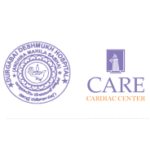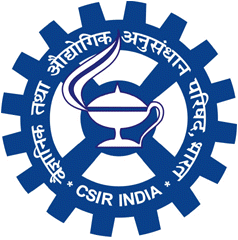Treatments Focus
Polycystic Ovary Syndrome (PCOS)

Essentially, PCOS is a hormonal disorder that is becoming more common in Indian women and girls during their reproductive years. In fact, one in every five women in India (22.5 percent) has PCOS, with the majority impacted falling between the ages of 15 and 40years. Unfortunately, the alarming fallouts of urban living and a general lack of awareness about this health condition are blamed for this rising danger.
As the name suggests, most women with PCOS have numerous cysts of varying sizes in one or both ovaries. They may also produce excessive amounts of the male hormone androgen, inhibiting ovarian follicle maturation and egg release to cause a wide range of PCOS symptoms.
Additionally, if left undiagnosed or unchecked, the disorder can even lead to the risk of other serious medical complications, such as inability to conceive, type 2 diabetes, cardiovascular disease, miscarriage or stillbirth, gestational diabetes, hypertension, sleep apnea, depression, anxiety, and in some cases, gynecological cancer.
Common symptoms of PCOS
PCOS can cause several telltale symptoms, although these symptoms aren’t always uniform. Some of the most common PCOS symptoms that you might experience include:
Irregular, missed, prolonged or heavy period
Excessive hair growth on the face, chin, chest, stomach, and back (hirsutism)
Presence of cysts in one or both ovaries
Weight gain, especially around the waist
Thinning hair on the scalp
Pelvic pain
Infertility
Acne or oily skin
Darkened skin on the neck creases, underneath the breasts, or thighs
Causes of PCOS
Presently, the exact reasons for some women getting PCOS aren’t clearly understood. However, most experts believe that PCOS is a multifactorial metabolic disorder influenced by genetic, hormonal, environmental, and lifestyle factors that cause increased hormonal imbalances(testosterone) contributing to symptoms of PCOS.
- Family history of PCOS
- Insulin resistance
- Excessive secretion of androgens (male hormones)
- Obesity
- Lack of physical exercise
- Unhealthy diet habits
- Improper sleep schedule
- Chronic inflammation
- Poor immunity
Diagnosis and Treatment
There is no single definitive test to diagnose PCOS. Although your doctor will take note of your symptoms, ask about your medical history, and perform a pelvic exam. You will also have blood tests to measure your hormone, blood sugar, and cholesterol levels. Ovarian ultrasonography may also be carried out to inspect your ovaries for cysts and uterine lining for tumors.
In terms of treatment, there is still no complete cure for PCOS. However, depending on your age, symptoms, and desire to become pregnant in the future, your doctor may recommend lifestyle changes and prescribe medications to help you manage PCOS symptoms and reduce its apparent effect.
FAQ's :
References:
- Polycystic ovary syndrome (PCOS)—Symptoms and causes. Mayo Clinic. Retrieved May 8, 2022, from https://www.mayoclinic.org/diseases-conditions/pcos/symptoms-causes/syc-20353439
- 65 per cent women in India unaware of PCOS symptoms; reveals survey conducted by OZiva. . ANI News. Retrieved May 8, 2022, from https://www.aninews.in/news/business/65-per-cent-women-in-india-unaware-of-pcos-symptoms-reveals-survey-conducted-by-oziva20210923142626/
- Polycystic Ovary Syndrome (PCOS). (n.d.). WebMD. Retrieved May 8, 2022, from https://www.webmd.com/women/what-is-pcos
- PCOS: A lifestyle disorder. Retrieved May 8, 2022, from https://www.telegraphindia.com/health/pcos-a-lifestyle-disorder/cid/1677239
- Polycystic ovary syndrome: MedlinePlus Genetics. Retrieved May 8, 2022, from https://medlineplus.gov/genetics/condition/polycystic-ovary-syndrome/
- Polycystic Ovarian Syndrome: Practice Essentials, Background, Etiology. (2022). https://emedicine.medscape.com/article/256806-overview#a4
- De Leo, V., Musacchio, M. C., Cappelli, V., Massaro, M. G., Morgante, G., & Petraglia, F. (2016). Genetic, hormonal and metabolic aspects of PCOS: An update. Reproductive Biology and Endocrinology, 14(1), 38. https://doi.org/10.1186/s12958-016-0173-x
- If Your Mom or Sister Has PCOS, You May Be More Likely to Develop It style=”font-size: 16px;”>. Health. Retrieved May 8, 2022, from https://www.health.com/condition/pcos/is-pcos-genetic
Related Articles
Book an Appointment to understand how GenepoweRx can help you in treating
Polycystic Ovary Syndrome (PCOS)
Meet The Doctors
Dr Kalyan Uppaluri
Dr Hima Challa
Your genetics … Your Test ... Your Health Success
It’s always the word of mouth that’s the best advice. Here are some of our…


Our Partners






Professional Partnerships
Government Association

